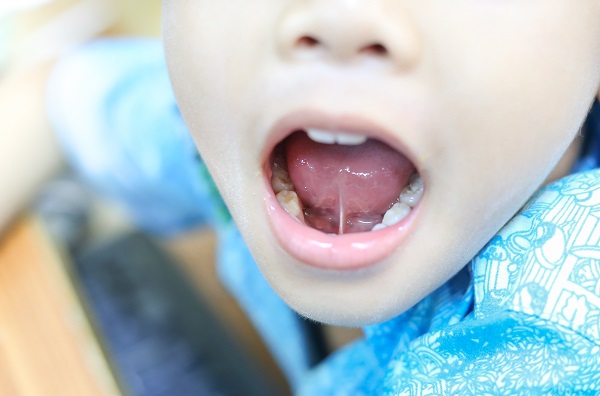What to Ask Your Doctor About Tongue Tie Laser Surgery

Tongue tie laser surgery is a quick and painless process that can help your baby breastfeed more effectively. If you are experiencing hardships during nursing, it could be because your baby cannot move their tongue freely. Your dentist can correct this problem and help both you and your baby. Before you decide to move forward with this operation, it is helpful to talk to the dentist about your questions and concerns.
An overview of tongue tie
On the underside of the tongue is a tissue called the frenulum. It connects the tongue to the bottom of the mouth. Most people pay little regard to the frenulum, but it plays an integral role in a baby’s ability to eat. If a baby’s frenulum is too short or too tight, it may be difficult to move the tongue properly. Fortunately, tongue tie surgery can correct these issues and increase the child’s likelihood of successfully nursing. In the surgery, the dentist removes the frenulum, removing the tongue-movement restrictions.
Questions about the method
In the past, dentists and doctors would remove a baby’s frenulum with surgical scissors or similar tools. Today, a laser is the preferred instrument. By using a laser, the dentist can be more precise and accurate. While scar tissue can develop from any surgical procedure, it is less likely to appear when a laser is involved.
Parents love that this procedure is quick. In about five to 10 minutes, the dentist can successfully remove the frenulum and solve the tongue tie. This does not include prep time and the time it takes the dentist and the staff to clean up after the surgery. Parents should spend no more than an hour total at the office for this operation.
Questions about pain and adverse effects
It is difficult for a parent to watch their young child or baby undergo an operation. However, the tongue tie laser surgery has little to no pain. The patient will have only minor bleeding. In fact, the dentist should not have to use stitches on the wound site. Another benefit is that the dentist will not use a local anesthetic, so parents should not have concerns about the baby having any allergic reactions to medication.
Questions about the results
After getting tongue tie laser surgery, the baby has an increased chance to successfully nurse. With free tongue movement, the baby can latch onto the mother’s nipple and get proper suction to eat. This allows the child to get adequate nutrition. Mothers can be free of breast pain and be less prone to developing breast infections.
No need to wait
If your baby is not eating well, it could be because of a tongue tie. Talk to your dentist today about how to correct these challenges. Your dentist may recommend the tongue tie laser surgery. When you understand what will take place during this operation and the benefits it provides, you can feel comfortable knowing your baby can have improved health.
Are you considering tongue tie laser surgery in the Middletown area? Get more information at https://www.hvkidsmiles.com.
Check out what others are saying about our services on Yelp: Read our Yelp reviews.
Recent Posts
Cavities are a common dental health issue, and as kids learn to care for their teeth, they are often more prone to developing them. Dental fillings for kids can help avoid future oral health complications and protect their young smiles. Here are the basics of the treatment process that you should know as a parent…
Curious about dental fillings for kids? Read on to learn more. As your kid ages, you most likely have many questions about their overall health. Questions like "Are dental fillings for kids necessary?" or "What happens to baby teeth with nontreated cavities?" These are crucial questions to think about, and this article addresses them so…
Lip tie laser surgery can sound like a modern, gentler option, while a scissor frenectomy often feels simpler and more familiar. Both approaches aim to release a restrictive upper labial frenulum when symptoms and clinical findings support treatment. A pediatric dental evaluation should focus on function first, since many frenula look prominent but cause no…
Pediatric dentistry can help new parents care for their baby’s first teeth. Starting early with your baby’s oral hygiene means cleaning your child’s gums before the teeth erupt. This helps your baby get used to mouth cleaning. If you want to learn how to care for your baby’s first teeth, here are four pediatric dentistry…


